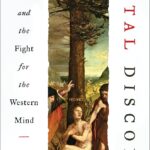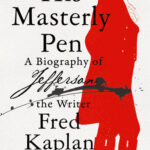 The National Endowment for the Arts report on the nation’s reading habits seems to have some legs. This weekend’s New York Times magazine contained an essay on the subject by Mark Edmundson, the Daniels Family Distinguished Teaching Professor at the University of Virginia. His new book, ”Why Read?,” will be published next month.
The National Endowment for the Arts report on the nation’s reading habits seems to have some legs. This weekend’s New York Times magazine contained an essay on the subject by Mark Edmundson, the Daniels Family Distinguished Teaching Professor at the University of Virginia. His new book, ”Why Read?,” will be published next month.
“Reading, you hear, is necessary to maintain democracy,” he writes. “It can produce informed citizens. Right, but couldn’t public radio do the same thing? We hear that reading conveys knowledge; it delivers the bounty of the past to the present. Again, good, but in terms of pure rote knowledge, couldn’t film and verbal delivery work nearly as well?”
I like what Edmundson says about why we read. Words on the page do have power. Read the following two paragraphs and tell me whether they don’t ring at least partially true.
“To me, the best way to think about reading is as life’s grand second chance. All of us grow up once: we pass through a process of socialization. We learn about right and wrong and good and bad from our parents, then from our teachers or religious guides. Gradually, we are instilled with the common sense that conservative writers like Edmund Burke and Samuel Johnson thought of as a great collective work. To them, common sense is infused with all that has been learned over time through trial and error, human frustration, sorrow and joy. In fact, a well-socialized being is something like a work of art.
“Yet for many people, the process of socialization doesn’t quite work. The values they acquire from all the well-meaning authorities don’t fit them. And it is these people who often become obsessed readers. They don’t read for information, and they don’t read for beautiful escape. No, they read to remake themselves. They read to be socialized again, not into the ways of their city or village this time but into another world with different values. Such people want to revise, or even to displace, the influence their parents have had on them. They want to adopt values they perceive to be higher or perhaps just better suited to their natures.”





